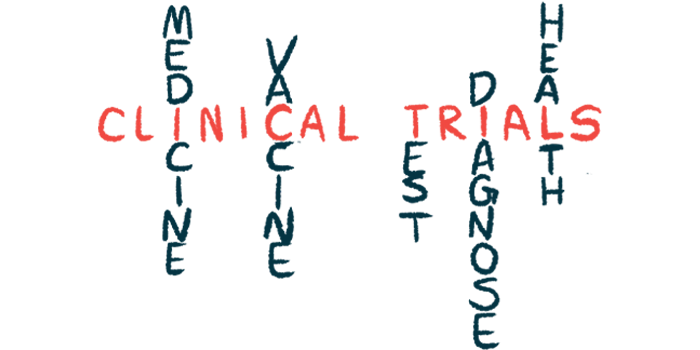Relmada taking steps to launch clinical trial of sepranolone in PWS
Therapy's 'novel action' may help ease compulsive behaviors, per developer
Written by |

Relmada Therapeutics is working toward the launch, next year, of a Phase 2 clinical trial to test sepranolone — which the company believes will be a first-in-class treatment for easing compulsive behaviors — in people with Prader-Willi syndrome (PWS).
Preparations include engaging U.S. Food and Drug Administration officials to discuss the proposed trial design in advance of its anticipated start in the first half of 2026. The company is also setting up its product supply chain with contract manufacturers, according to a press release from Relmada announcing its latest financial results and pipeline updates.
Sepranolone (isoallopregnanolone), which Relmada acquired from Asarina Pharma AB earlier this year, is an injection therapy that aims to help alleviate compulsive behaviors in people with neurological conditions such as PWS.
“We believe sepranolone’s novel action … gives it unique potential to alleviate the repetitive symptoms and disorders where compulsive behaviors are a common feature,” Maged Shenouda, Relmada’s chief financial officer, said in a company webcast on Aug. 7 that provided further information.
“These disorders affect millions of people in the U.S. and around the world, and include indications such as Prader-Willi syndrome and Tourette’s syndrome,” Shenouda said. “We have selected … PWS as the first clinical indication that we will evaluate with sepranolone.”
A rare genetic disorder, PWS is caused by the loss of or defects in certain genes on chromosome 15, particularly those involved in metabolism, appetite, growth, intellectual skills, and social behavior.
Common symptoms among patients are low muscle tone, known as severe hypotonia, developmental delays, shorter stature, sleep problems, mood challenges, and anxiousness. Excessive appetite and compulsive eating, as well as other obsessive-compulsive behaviors, are hallmarks of the disease.
Relmada calls sepranolone a first-in-class therapy
Gamma-aminobutyric acid, or GABA, is the brain’s primary suppressor neurotransmitter, or signaling molecule. Among its many effects, GABA is known to help regulate anxiety and compulsive behaviors. It is modulated by a molecule called allopregnanolone via binding to GABA-A receptor proteins.
Allopregnanolone typically boosts GABA’s calming effects, but in some individuals, it can conversely exacerbate anxiety and compulsive behaviors. Abnormalities in the allopregnanolone-GABA signaling have been implicated in PWS and other stress- and compulsion-related conditions, including Tourette’s, essential tremor, and obsessive-compulsive disorder.
Sepranolone is a first-in-class therapy designed to selectively target GABA-A receptors and counteract allopregnanolone’s effects, without disrupting GABA signaling. The therapy is expected to normalize GABA-A signaling and ease compulsive behaviors.
Proof-of-concept study expected in first half of 2026
Data from a previous Asarina-sponsored Phase 2a clinical trial showed positive sepranolone effects in people with Tourette syndrome, a neurological disorder marked by sudden and uncontrolled rapid movements or vocal sounds called tics.
In that study, participants were randomly assigned to receive either standard care plus sepranolone, administered by subcutaneous, or under-the-skin, injections twice weekly, or standard care alone for 12 weeks, or about three months.
Data showed that the experimental therapy was associated with a pronounced reduction in tics, as well as quality of life improvements. Sepranolone was generally well tolerated, with no reports of off-target neurological or body-wide side effects. Off-target effects refer to the unintended interactions of a molecule, like a drug, with biological targets other than those it its designed to target.
Our efforts in the coming months will be focused on completing study preparations.
Sepranolone has also been shown to lessen symptoms and distress in women with premenstrual dysphoric disorder, a mood condition associated with increased allopregnanolone levels.
“More than 335 patients have been treated with sepranolone in clinical trials to date, with an excellent safety profile,” the release stated.
The upcoming Phase 2 trial in PWS is meant to be a proof-of-concept study, whose findings may help to determine the future development of the experimental therapy for this condition.
“Our efforts in the coming months will be focused on completing study preparations,” Shenouda said.






